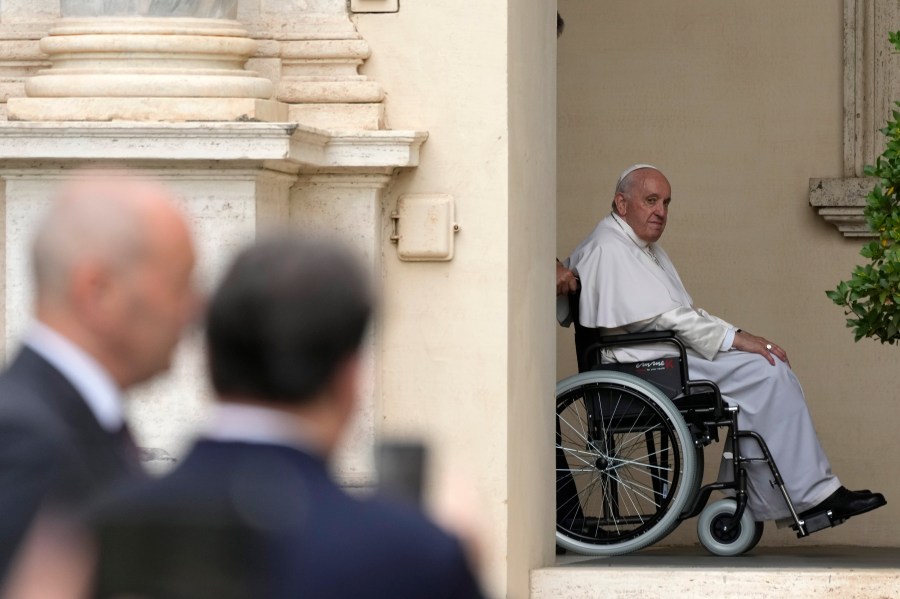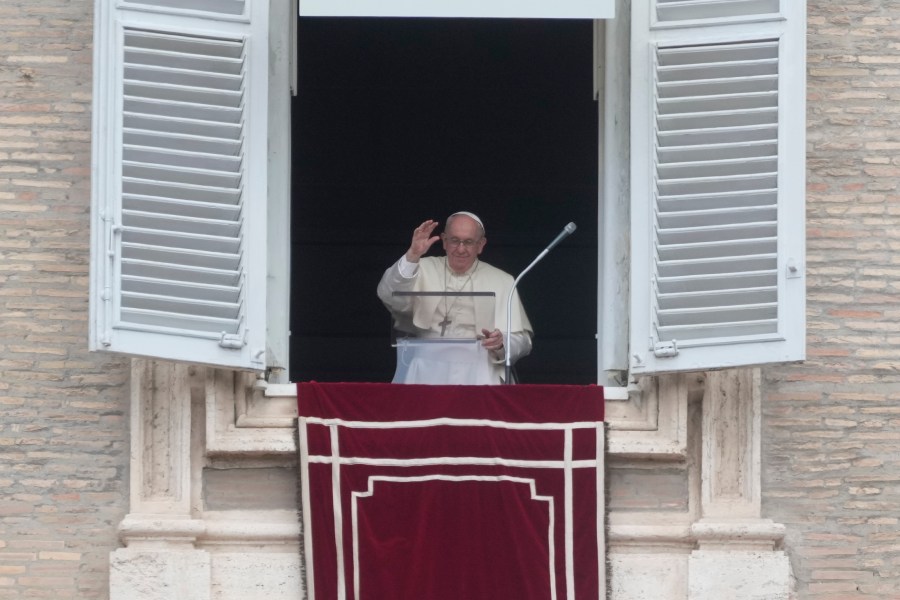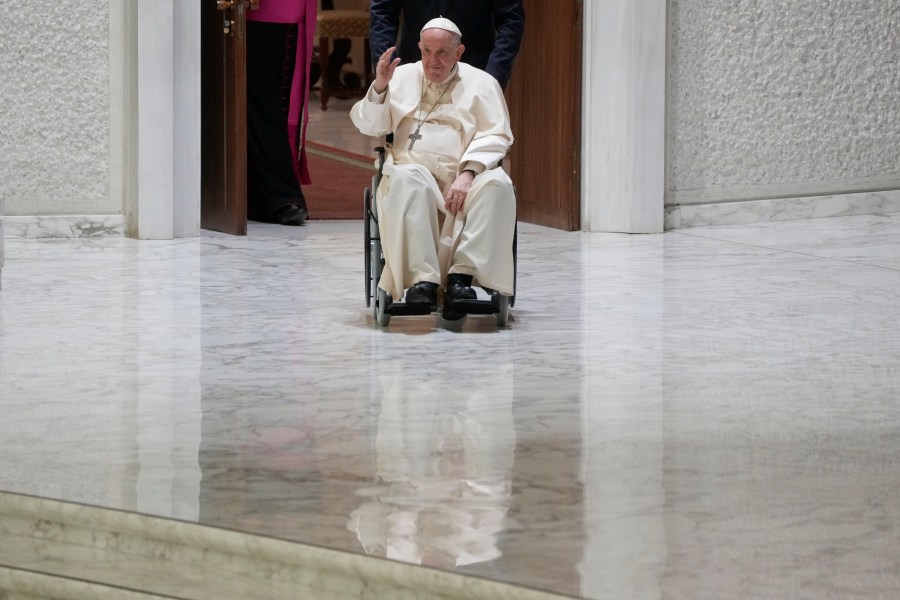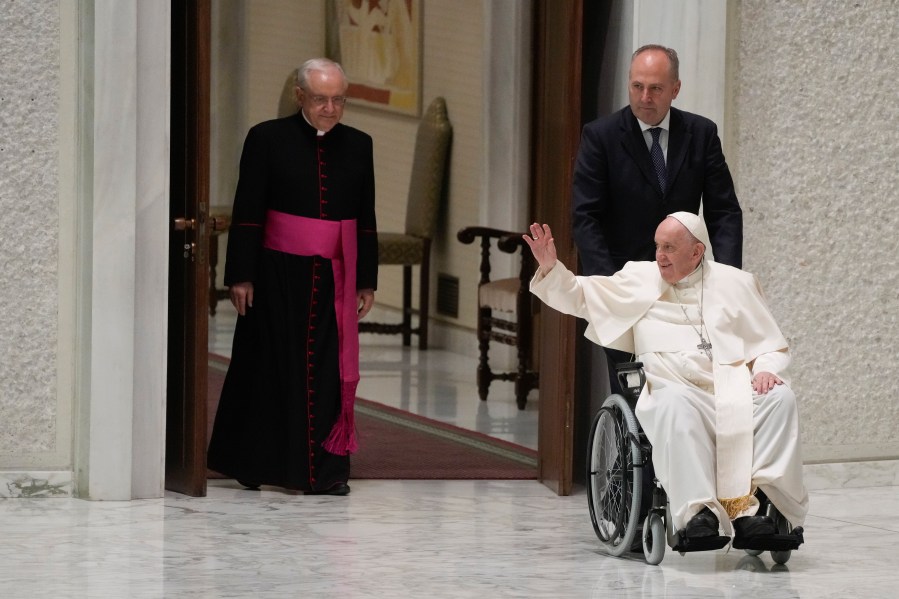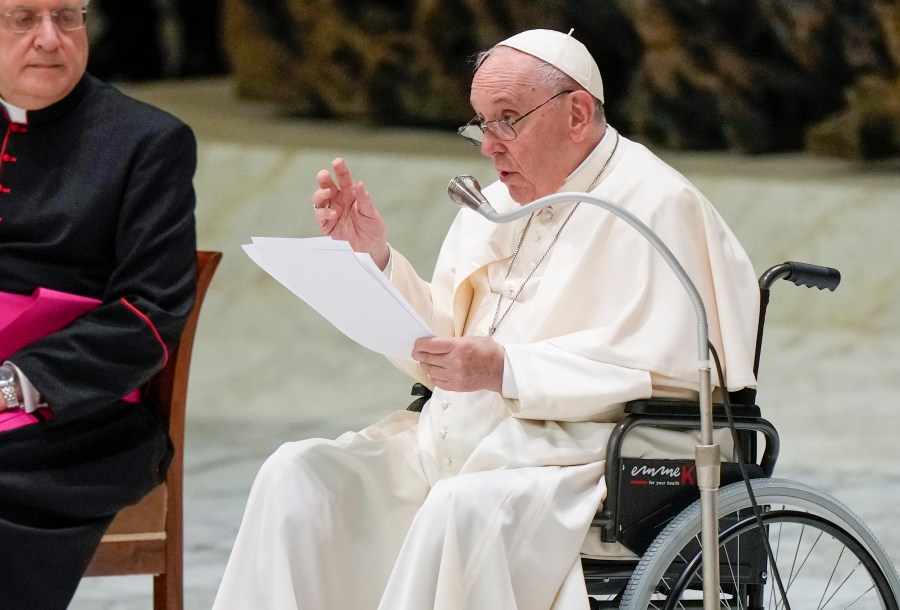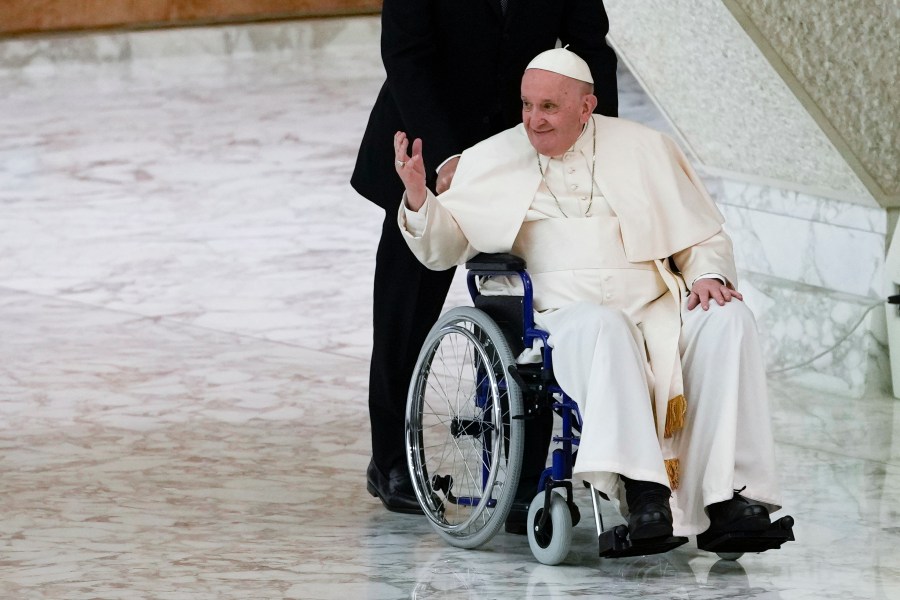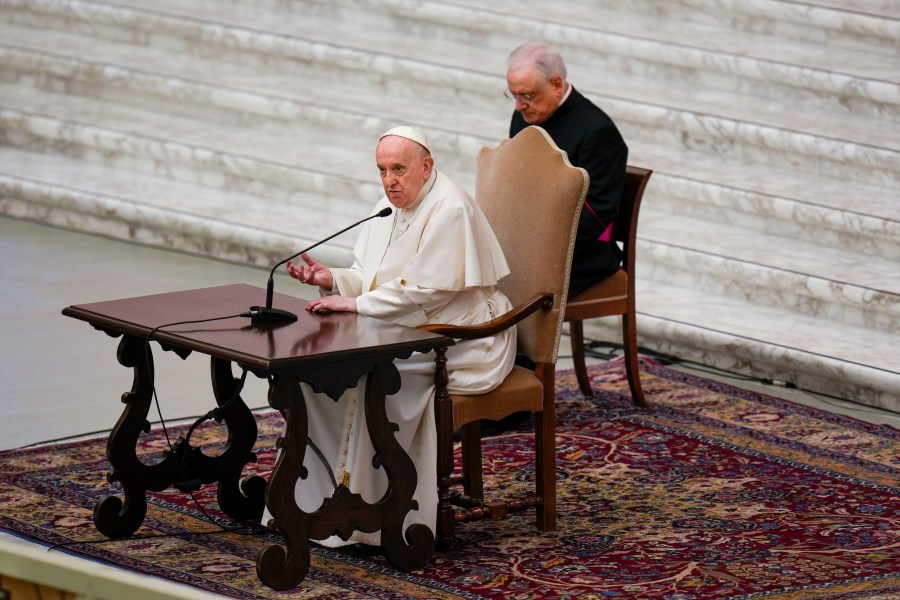Pope Francis’s new plans spark retirement rumors
(NewsNation) — Pope Francis hasn’t mentioned anything about retiring, but the pope and Vatican employees are usually off in August for a summer break.
However, the pope just announced he’s meeting with cardinals this August instead.
His timing has caused close followers to speculate and spread rumors of his possible retirement.
The rumors over the pope’s retirement started last week when Pope Francis announced he’s appointing 21 new cardinals, scheduled it for Aug. 27.
By this summer, Pope Francis would have stacked the college of cardinals with 83 of the 132 cardinals who can vote for his successor.
Many have speculated that because of this, Francis’ work could be considered accomplished; especially since the next pope who gets voted in would probably share similar views.
Francis has been the most progressive pope, focusing on inclusivity and diversity within the Catholic church.
He is also 85 years old, and recent mobility problems have had him in a wheelchair for the last month.
The Vatican announced on Saturday that Pope Francis would visit the Italian city L’Aquila on Aug. 28 and open the holy door at the Basilica. It’s the church’s celebration of the feast of forgiveness. And this stands out because no pope has traveled there to close the annual feast since Pope Benedict XVI, the last pope to retire, was there.
Pope Benedict was also 85 years old when he announced his retirement shortly after saying he no longer had the body or mind to continue his duties as pope.
Executive Director and CEO of Relevant Radio Rev. Francis “Rocky” Hoffman told NewsNation that it is very rare for a pope to retire.
“In fact, 10 years ago, nobody would have thought it was possible because the last pope to retire was in the year 1298.” Hoffman said, “That’s, you know, more than 700 years ago — that was Celestine V, who is actually buried in L’Aquila where the pope is going on August 27 and August 28.”
Hoffman said history buffs would be able to connect the dots between the upcoming events and historical events.
“And we’ve seen the Holy Father this past month in a wheelchair, and most of us in the audience are thinking who wants to be working a full-time job when they’re 85 years old … St. John Paul II persevered until the end. But Benedict XVI said, you know, I’m done. He gave a two-week notice, isn’t it amazing?”
Less than a month after Benedict XVI retired, Pope Francis was elected.
In the church, priests retire when they’re 70, bishops retire when they’re 75 and cardinals lose the right to vote when they’re 80.
Hoffman said that it would be understandable if Francis retired at 85, especially since his health has declined.
“Mentally, he seems to be very, very sharp, which is a key thing. And you know, he’s brought a different style to the pontiff ticket.” Hoffman speaks on Francis’s mental health, “And he’s been deliberate in choosing cardinals from places which never would have occurred. And I think he’s been very consistent on that, to get a broader participation in the church.”
If he steps down, Francis will be the second pope in a row to leave after a relatively short time. Considering Hoffman believes stability is important for the church, it begs the question: would the church want a younger successor to fill the position?
“Stability is very important, but more important than stability is unity. And that’s the chief role of whoever’s the pope: to keep the people united,” Hoffman said.
“Ultimately, we have to depend on God, not on any human being male or female, no matter what they are for that unity,” Hoffman continued.
It’s unusual that the cardinals elect somebody very young. The cardinals need to find a consensus in an efficient amount of time, as not to leave the papacy empty for too long.
“They’re going to try to depend on what the Holy Spirit wants. But right now, the Holy Spirit has Pope Francis in that role. And we pray for him every day, we wish him the best.”
Hoffman isn’t sure what Pope Francis’s legacy will be. Pope Francis had sky-high approval ratings in 2013 when he first arrived, but since then it’s reportedly gone down among conservatives in the church.
“I suppose his legacy is recognized through different lenses. And it usually takes a long, long time to figure out what the purpose of legacies, but often the legacy problem is something very surprising. His legacy may be that he added the name of St. Joseph to every Eucharistic prayer at mass. His legacy may be the reform of the Curia.”
Hoffman believes that only time will tell what Pope Francis will be remembered for.
But what happens if Pope Francis does decide to retire? How is a new pope elected?
There have been more than 260 popes since St. Peter, who is widely considered the first pope. Some serving for only a short while, others for a lifetime.
But in order to elect a new pope, there is a long process the cardinals go through.
Most popes have been chosen after the previous pope died, but that tradition was altered in 2013 when Pope Benedict XVI retired.
Until a new pope is nominated, the cardinals take over. They gather from all around the world and meet at the Sistine Chapel. There, they start the nomination process.
Any male who is baptized in the Catholic Church is eligible to be pope, but since the 1300s, only cardinals have been elected.
During the voting process, the cardinals cast secret ballots. Once their votes are cast, they burn their ballots so no one knows who voted for who. This continues until a nominee receives two-thirds of the vote.
A chimney expels black smoke throughout the entire process, and it turns into white smoke as an announcement that a new pope has been nominated. The nominee then has to decide to accept that nomination.
After accepting the position, the new pope can then decide on their name. It can be whatever name they want it to be.
An announcement is made at the balcony of St. Peter’s Square in Rome when the new pope takes over.






